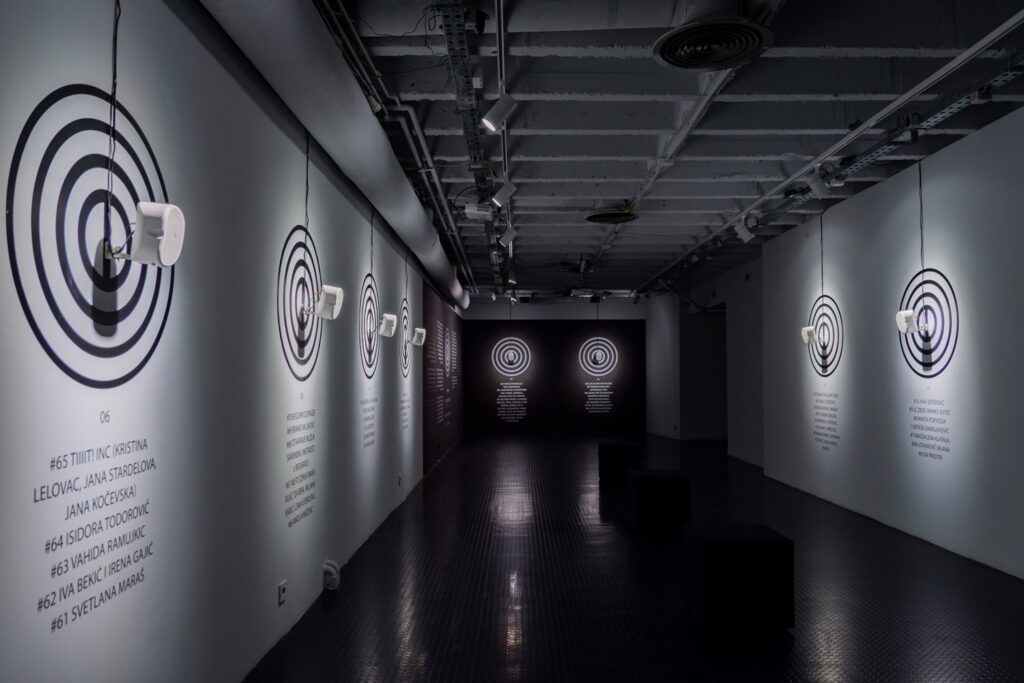Radio and Social Activism
A synonym for radio in Serbia is radio station B92 – it is even today, six years after it has been shut down.
During the 1990s war in Yugoslavia and Serbia, this radio station played a key role in informing the citizens of Serbia, being the only independent medium in the state that was back then under the total media and economic blockade. Therefore, Radio B92 has been the symbol of freedom, activism and victory over the regime of Slobodan Milošević. In 2015, under the rule of Aleksandar Vučić, the controversial privatization of the media in Serbia was carried out (to which the previous democratic government also contributed). On this occasion, Radio B92 was abolished, while another important Belgrade and Serbian radio – Studio B – was transformed from a public, city based service into a private medium serving the ruling party. This led to the total dominance of commercial and exclusively musical content in the entire radio scene, but also to the strengthening of the activation of radio-internet projects.
The last FM Mohicans
Radio Belgrade (founded in 1929) and Radio Novi Sad, with programs in the languages of the national minority communities of Vojvodina, remained as the few FM stations devoting a significant part of their program to the specially created content and different genres. They are part of the state public service and also create an online version of the program. One of the very impressive voices of Radio Belgrade’s “Second Program”, literary critic Saša Ćirić, who also often criticizes the Serbian government, considers his independent position as an author in the state pro-regime media possible because “culture, science and education as program areas of this radio are not particularly interesting for political or ideological instrumentalization for the government. But it is also not advisable for the government to suppress all dissenting opinions, as this would increase resistance from within the system and further expose the authoritarian nature of the government,” states Ćirić for Radio free FM.
Radio-Internet “Pathfinders” Some author programs, analysis programs problematizing political and social reality, programs about music, culture and science from various abolished radios, have moved their programme activities to the Internet. Brand new radio productions have also appeared. Oradio from Novi Sad, as a part of the public broadcaster Radio-Television Vojvodina, is one of the few Internet radio stations with a profiled content and a stable budget. These days Oradio celebrates its 7th birthday. On this occasion we asked Predrag Novković, deputy editor-in-chief, a few questions:
How do you assess the achievements of ORadio today in relation to the initial vision and program concept?
To what extent does the issue of instability of media freedom in Serbia affect ORadio?
What did digitalization bring to ORadio?
We have also asked the editor Svetlana Đolović about the work of the independent Internet community ”Radio Aparat”, that is based in Belgrade and which has also a profiled program and quite large audience:
At: https://podcast.rs/lista-podkasta/ there are many creative podcasts from Serbia and the ex-Yu region, many of which deal with the region’s war past, freedom of expression, minorities and vulnerable groups, women’ s and LGBT rights, precarious working conditions… So many social phenomena that are suppressed or insufficiently present in the official discourse of governments and institutions.
By having managed to preserve the essence of radio art: Timeliness of information, emotion and immediacy, podcast and internet radio have become new spaces of freedom in Serbia as everywhere else in the world. But the freedom that needs to be guarded and further upgraded.





